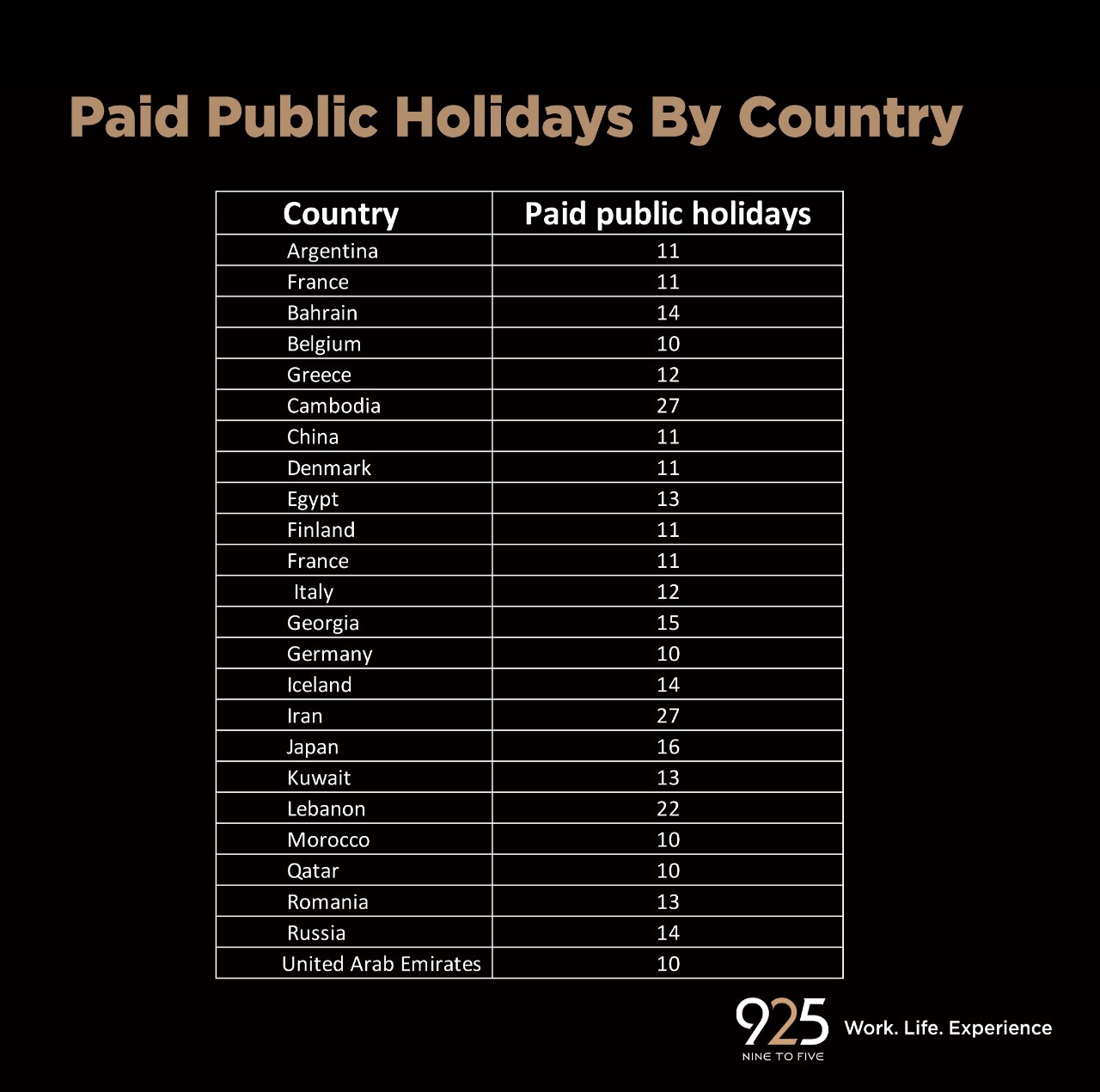With world economies lagging, including the most economically developed countries, people are more or less chained to their offices in fear of losing their jobs. At the same time, more and more people are out of work due to COVID-19’s economic aftereffects, the potentiality of a second wave, and the continuous pressure and mentality that everyone has to “work hard”. Hence, employees at all levels have the tendency to work on paid and unpaid holidays, and for long hours.
An article titled “New Study Shows Correlation Between Employee Engagement And The Long-Lost Lunch Break” in Forbes Magazine, says that being able to take lunch breaks, and breaks throughout the work day is necessary for productivity. Too many people have the idea that working 24/7 is what helps them achieve a “good standing” at their workplace. However, “chaining yourself to a desk or scarfing down your lunch in your cubicle isn’t a recipe for success – it’s a recipe for disaster.”
Not taking breaks within the day takes its toll on mental health leading employees to be overworked, stressed and burnt out. Essentially, if taking breaks during the day is that important, surely taking paid national holidays, weekends without work, and shorter working hours is something necessary.
Public Holidays Around The World
Taking into consideration that the pandemic had people working from home for quite some time, the lines between weekends, holidays, working days and working hours all blurred. Often, we find ourselves working on a weekend and sleeping in on what used to be a regular working day. But in this scenario, what becomes of public holidays?

Countries around the world have a different amount of paid public holidays simply because we celebrate different things. Generally, the average amount is 10 to 15 days. Inevitably, the work-life balance may also differ across countries because of different upbringings and cultural differences. However, this is not to say that holidays are unnecessary.
A huge part of being able to produce quality work comes from taking holidays. According to the Undercover Recruiter, holidays make you healthier, you get to spend quality time with people you love, it gives space for new experiences, and establishes a work-life balance.
Many experts see that taking holidays improves productivity, because you come back refreshed and ready to work harder. If you’ve been at work continuously without any breaks for months, your productivity is bound to decrease from exhaustion and possibly the boredom of the routine too.
How Do We Know That X Amount Of Holidays Is ‘Too Much Vacation Time’?
According to World Atlas, Cambodia has the highest number of public holidays at 27 days, meanwhile Finland has 11 and Sweden has 9. There is a general perception that Northern European countries have a better work-life balance, and yet as previously stated most countries range between 10 to 15 public holidays; Egypt has 13.
Egyptian billionaire businessman Naguib Sawiris recently tweeted that public holidays need to decrease. This is in the context that less holidays (not including religious holidays) would help improve work productivity.
صباح الخير على الناس الحلوه … و ربنا يقلل من اجازاتنا و يزود من شغلنا علشان نطلع لقدام .. ادعو لمراجعة كل الاجازات ما عدا الأجازات الدينية .. لكن ممكن يوم واحد اجازة لكل الثورات مع بعض مثلا ؟
— Naguib Sawiris (@NaguibSawiris) August 21, 2020
Growing up, we’ve become accustomed to three months of summer in which we’d go back to school in September having forgotten much of what we learned the year before. Perhaps, 3 month-long summers is what we can say is ‘too long’, but public holidays are usually 3 to 4 days off, which are often much needed.
“I can never be productive on a day where my family and friends have it off yet, I’d go to work. When I work on holidays, I go to the office with my spirit down. Holidays and celebrations on these days with people you love are what make us productive on other days. We need holidays to take a break,” said Nouran El-Ashry, who works in digital marketing.

Every employee waits to hear that an upcoming Thursday in the month is a holiday, because it immediately means ‘long weekend’. We count our blessings when it’s a Wednesday that’s off too, because that means an even longer weekend to be excited about. While holidays may mean no productivity on certain days, they are almost necessary to keep employees satisfied and encouraged to work on regular working days.
Having less holidays wouldn’t encourage employees to work at a faster, or at a more productive rate. “I’d be super unhappy and demotivated because I’d be questioning my life choices. More time off, means I’d be way more efficient when I’m actually working, because I’d have control over my time,” said Nada Naguib, who works in e-commerce.
How Many Hours Per Day Do You Work?

When it comes to working hours, Naguib said that shorter working hours would definitely improve productivity. “Get in, do everything I need to do, get out. If I’ll have to work more hours, then I might as well drag this task out,” she said.
There’s more to work-life balance than just holidays. Working hours play a huge role in productivity too. But there are several viewpoints to it. Recently, 925Egypt published a quote on Instagram where the CEO of Egyptian Steel, Abou Hashima said, “I wake up every day at 6 am to go to my office at 8, and work until 9 in the evening. I still work 18 hours a day until now. If you stick to normal working hours, you will reach a normal level of success. This is the price I pay to be where I am now.”
In a previous interview 925Egypt did with entrepreneur Khaled Bichara, he jokingly said, “although your name is 925, I don’t think working from 9 to 5 will bring you success. You probably have to work much harder than that.”
Many of the most successful business owners do work for long hours. However, working long hours is not the recipe for immediate success, there is still passion, commitment, creativity, compassion, ability to delegate tasks and many other crucial ingredients to success. This is in the sense that if someone was looking to be a business owner or CEO, but even in this case, long working hours may compromise physical and mental health.
Egypt & Around The World

Most people in Egypt work from 9 to 5, and often carry their work home with them if there is anything that necessarily needs to be done. But there are also people who freelance for a living, there are those who juggle several jobs at once, and there are those who work in the informal sector and have no holidays to begin with. There are many other work arrangements that have wildly different working hours. Having said that, it’s not easy to dictate what the correct working hours should be.
Making a living can often be a bitter struggle. In a lot of cases, people have no other choice but to work for long hours, and still struggle to make ends meet. But again, every living arrangement is different. 925Egypt has previously written an article on the different working hours around the world, and expectedly so, Germany and Sweden were mentioned as countries with the best work-life balance.
Conde Nast Traveller also made a list of countries that have relatively fair working hours with Denmark, Sweden, the Netherlands, and Finland top ranked due to shorter hours, shorter working weeks, and perhaps lifestyle too. Yet, these countries have between 8 to 10 days of paid holidays, while Egypt has 13.
Productivity comes from much more than just a debate between the amount of holidays and working hours. A major part of productivity also comes from actually liking your job. Being a magazine that covers Egypt’s workforce, we can tell you that your job is a part of your life, it is not your whole life. And hence, if you find yourself doing absolutely nothing but work, maybe it’s time to re-evaluate your priorities.




























